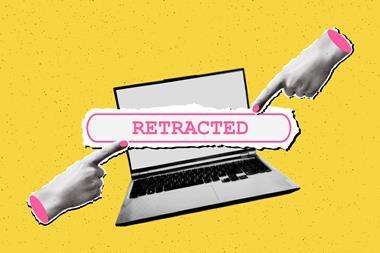Crossref, a nonprofit organisation that uses metadata to improve the searchability of research items, has taken over the Retraction Watch database. According to a statement released by the two groups, the deal will ensure the database’s long-term future and keep it free to use.
Retraction Watch is a blog and database run by the Center for Scientific Integrity, which provides details on scholarly papers that have been retracted, and the reasons for those retractions. Crossref is the world’s largest digital object identifier (DOI) registration agency, which holds around 150 million DOI records of scholarly documents like grants and journal articles.
Crossref has paid an initial sum of $175,000 (£140,000) to acquire the database, with a further $120,000 to be paid each year over the next five years. The Retraction Watch blog remains under the control of the Center for Scientific Integrity and will continue to report on retracted research.
‘For a decade, our members have been recording corrections and retractions through our infrastructure, and incorporating the Crossmark button to alert readers,’ said Crossref’s product director Rachael Lammey. ‘Collaborating with Retraction Watch augments publisher efforts by filling in critical gaps in our coverage, helps the downstream services that rely on high-quality, open data about retractions, and ultimately directly benefits the research community.’
The Retraction Watch database currently contains information on 43,000 retracted articles, while Crossref maintains information on 14,000 retracted papers. The groups say that the new agreement will create the ‘largest single open-source database of retractions’, reduce duplication and make it easier for researchers to know whether work they are reading or citing has been retracted.

















No comments yet